When I’m working on a kitchen project — whether it’s a new build or a charming old home that’s being thoughtfully updated — one of the biggest decisions we always come back to is countertops. And if I’m being honest? I’ll always have a soft spot for natural stone.
There’s something about real stone that just feels right — especially in homes with history, character, or that timeless “collected” look. Materials like granite, marble, and quartzite have been used for centuries, and they carry that richness and depth that man-made surfaces often try to mimic — but never quite match.
Don’t get me wrong: quartz countertops absolutely have their place. They’re low maintenance, versatile, and there are some beautiful options out there that look nearly identical to marble. But sometimes, in the wrong context (like an older or historic-style home), quartz can feel a little off — like it’s trying too hard to replicate something it’s not. Design-wise, it’s worth asking: does this material match the soul of the home?
If you’re trying to decide between quartz vs. granite, quartzite vs. marble, or just looking for the best kitchen countertop material for your space, I’m breaking down the pros and cons of each one — based on both personal experience and what I see clients gravitate toward again and again.
Let’s dive in.
Granite Countertops: Durable and Earthy, But Not Always Light
Granite is a natural stone that’s mined from the earth. It was incredibly popular in the early 2000s, which led to some design burnout (hello, Tuscan kitchens and speckled slabs from big box stores). But granite still has a place in modern kitchens — especially darker, leathered or honed finishes that mimic the look of soapstone.
Pros of Granite:
• Extremely durable and heat resistant
• Scratch-resistant and holds up well to daily use
• Each slab is unique, with natural patterns and veining
• Generally more affordable than quartzite or high-end marble
Cons of Granite:
• Needs to be sealed regularly to prevent staining (anywhere from every year to every 5 years, depending on use and installer recommendations)
• Fewer options for those who want a light and airy aesthetic
• Can have visible seams
• Very heavy and difficult to repair if chipped or cracked
This Galactic Black granite slab was a major contender for our own kitchen, I loved the dramatic veins and butter soft texture. We ultimately decided we wanted something lighter but I really want to use this in a future project.
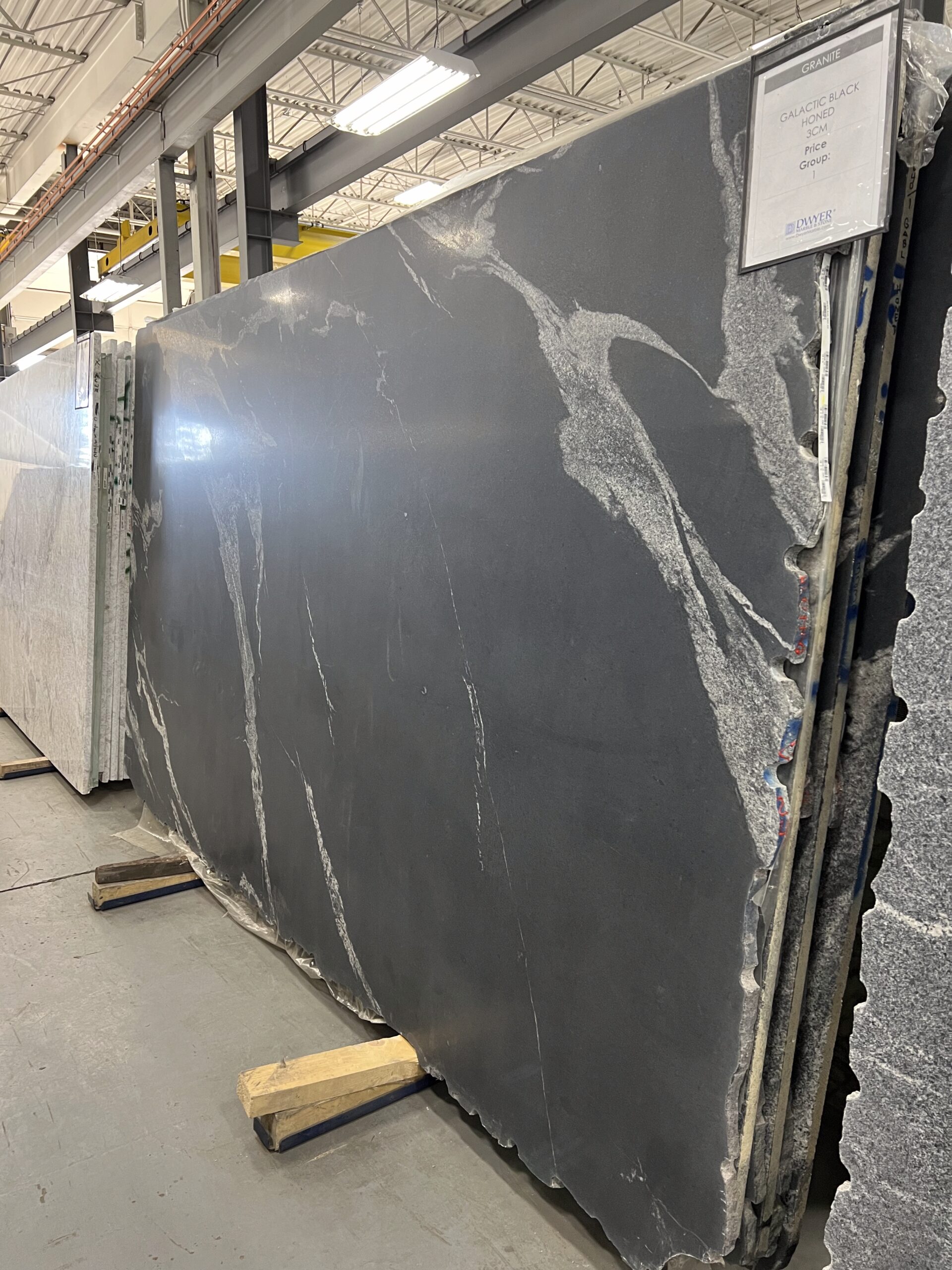
Quartzite Countertops: The Beauty of Marble With Extra Durability
Quartzite has become one of the trendiest natural stones for kitchens in recent years, and for good reason. It often mimics the soft veining of marble but with better durability — making it a great option if you love the marble look but want something a little more low-maintenance.
Pros of Quartzite:
• Natural stone with beautiful veining and color options
• More durable than marble and highly heat resistant
• Many quartzite slabs have a light and bright look, perfect for modern cottage-style kitchens
Cons of Quartzite:
• Like granite and marble, it’s porous and needs to be sealed
• Can stain if not properly maintained
• Typically more expensive than granite and some marbles (but there’s a range!)
• Limited availability in some areas and no two slabs are ever the same
A few quartzite slabs that I’m loving lately:


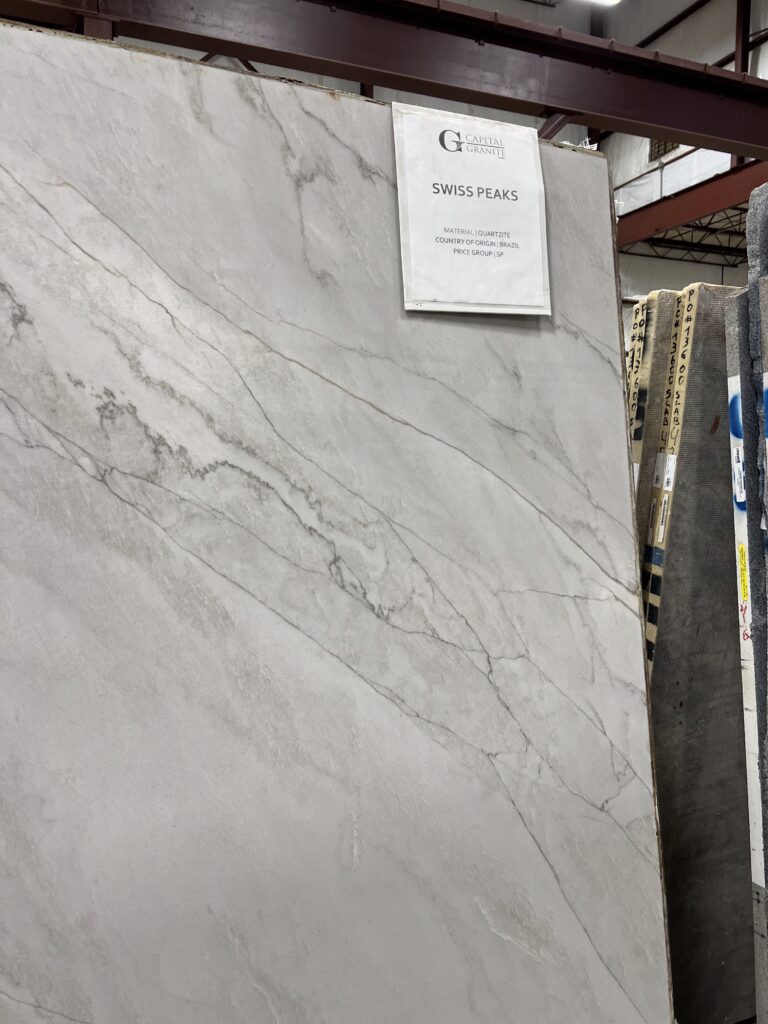
Marble Countertops: Timeless, Elegant, and High-Maintenance
Marble has been used in kitchens for centuries — from ancient European architecture to charming French country homes — and it’s one of my personal favorites. But it comes with its quirks, especially when it comes to staining and etching.
Pros of Marble:
• Classic and timeless look
• Naturally cool to the touch — ideal for bakers or warmer climates
• Adds instant charm and home value
• Each slab is unique, often with dramatic movement and veining
Cons of Marble:
• Very prone to staining, etching, and scratching
• Requires frequent sealing and immediate cleanup after spills (especially wine, lemon juice, or coffee)
• More fragile than quartzite or granite; can chip or bruise
• Some varieties are very expensive — but others can be surprisingly affordable
I have bruises and etching on my own marble countertops and honestly, I love the patina. It feels like a living surface that tells the story of your home. However our house is over 100 years old, so that has a brand new shine wasn’t really what I was looking for when we chose ours.
This slab is one we seriously debated – it’s not your typical “marble look”. However it was very rich and warm and all the movement would definitely camouflage any imperfections. Ultimately we decided it was too busy for our kitchen and I just wasn’t sure if I’d love it long term, but I’m still thinking about it 1 1/2 years later.

Quartz Countertops: Low-Maintenance and Consistent, But Man-Made
Don’t let the name fool you — quartz is not a natural stone, despite sounding like it is. It’s an engineered surface made with crushed stone and resin. Because it’s man-made, quartz offers a ton of predictability and design consistency, which can be a plus depending on your priorities.
Pros of Quartz:
• Non-porous and doesn’t require sealing
• Easy to clean and very low maintenance
• Available in a wide range of colors and patterns, including options that mimic marble or granite
• Uniform appearance makes matching slabs easy
Cons of Quartz:
• Not heat resistant — avoid placing hot pans or crockpots directly on the surface
• Can discolor with prolonged UV exposure (not ideal for sunny spaces)
• Repeating patterns can make the surface look less “natural”
• The resin content makes it vulnerable to heat damage or seam separation
Real story: I know someone who left a crockpot on a quartz seam and the heat caused the seams to pop apart. Not what you want in your brand new kitchen. I’m hoping it was a one off, fluke experience but its still very concerning.
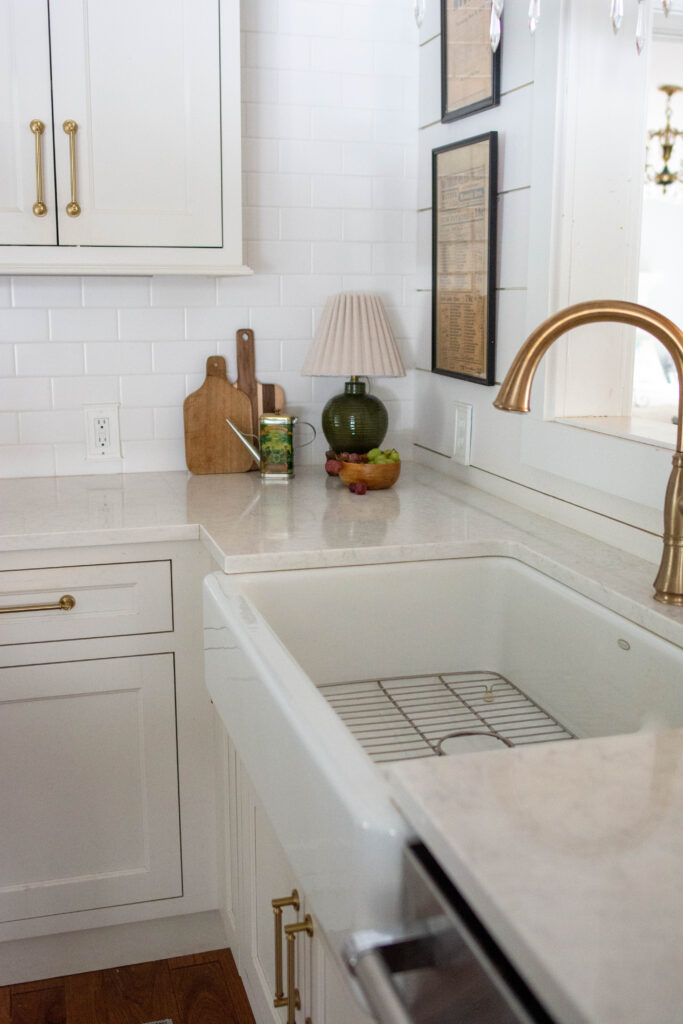
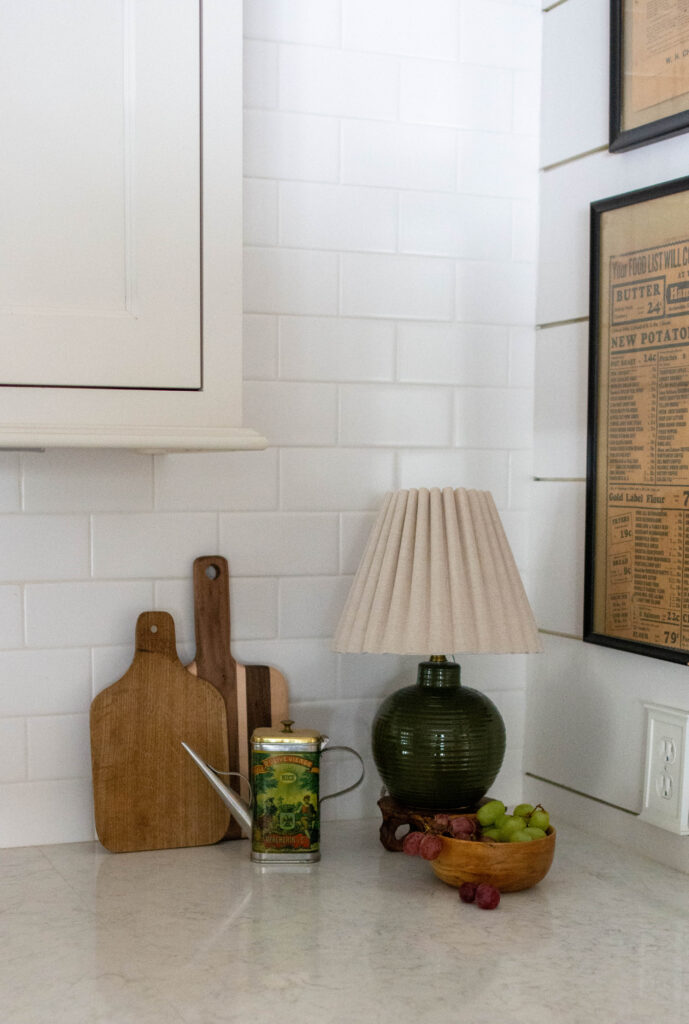
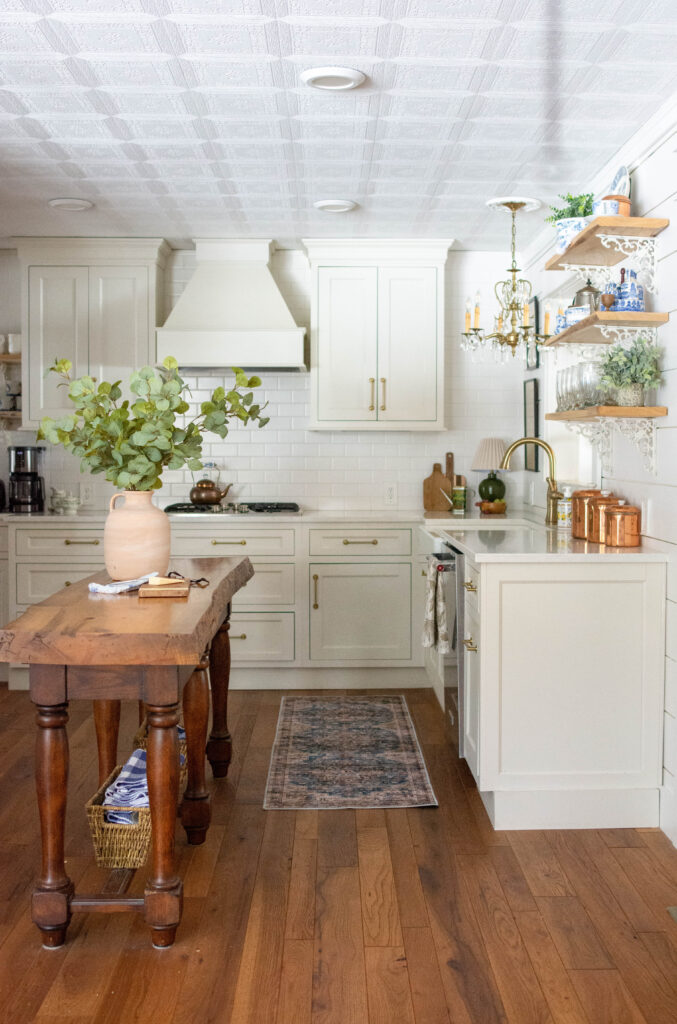
So… What’s the Best Countertop Material?
That really depends on your priorities:
• Love a lived-in look and don’t mind some patina? Go for marble.
• Want low maintenance and modern consistency? Quartz might be your best bet.
• Need serious durability and a natural stone aesthetic? Try granite or quartzite.
• Chasing the look of marble without the fuss? Quartzite is worth the splurge.
Every material has its pros and cons, and there’s no one-size-fits-all. Whether you’re drawn to the natural beauty of stone or the easy upkeep of man-made surfaces, choose the material that aligns with how you actually live in your kitchen.
⸻
Want help choosing materials for your kitchen remodel?
Let’s talk! I help homeowners blend timeless design with everyday function. Contact me here.

LEAVE A COMMENT
View Comments